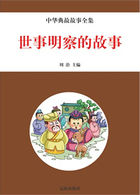IT was a wonderfully fine thing to have that lofty castle to myself, and to feel, when I shut my outer door, like Robinson Crusoe, when he had got into his fortification, and pulled his ladder up after him. It was a wonderfully fine thing to walk about town with the key of my house in my pocket, and to know that I could ask any fellow to come home, and make quite sure of its being inconvenient to nobody, if it were not so to me. It was a wonderfully fine thing to let myself in and out, and to come and go without a word to anyone, and to ring Mrs. Crupp up, gasping, from the depths of the earth, when I wanted her—and when she was disposed to come. All this, I say, was wonderfully fine; but I must say, too, that there were times when it was very dreary.
It was fine in the morning, particularly in the fine mornings. It looked a very fresh, free life, by daylight: still fresher, and more free, by sunlight. But as the day declined, the life seemed to go down too. I don't know how it was; it seldom looked well by candle-light. I wanted somebody to talk to, then. I missed Agnes. I found a tremendous blank, in the place of that smiling repository of my confidence. Mrs. Crupp appeared to be a long way off. I thought about my predecessor, who had died of drink and smoke; and I could have wished he had been so good as to live, and not bother me with his decease.
After two days and nights, I felt as if I had lived there for a year, and yet I was not an hour older, but was quite as much tormented by my own youthfulness as ever.
Steerforth not yet appearing, which induced me to apprehend that he must be ill, I left the Commons early on the third day, and walked out to Highgate. Mrs. Steerforth was very glad to see me, and said that he had gone away with one of his Oxford friends to see another who lived near St. Albans, but that she expected him to return tomorrow. I was so fond of him, that I felt quite jealous of his Oxford friends.
As she pressed me to stay to dinner, I remained, and I believe we talked about nothing but him all day. I told her how much the people liked him at Yarmouth, and what a delightful companion he had been. Miss Dartle was full of hints and mysterious questions, but took a great interest in all our proceedings there, and said,'Was it really though?'and so forth, so often, that she got everything out of me she wanted to know. Her appearance was exactly what I have described it, when I first saw her; but the society of the two ladies was so agreeable, and came so natural to me, that I felt myself falling a little in love with her. I could not help thinking, several times in the course of the evening, and particularly when I walked home at night, what delightful company she would be in Buckingham Street.
I was taking my coffee and roll in the morning, before going to the Commons—and I may observe in this place that it is surprising how much coffee Mrs. Crupp used, and how weak it was, considering—when Steerforth himself walked in, to my unbounded joy.
'My dear Steerforth,'cried I,'I began to think I should never see you again!'
'I was carried off, by force of arms,'said Steerforth,'the very next morning after I got home. Why, Daisy, what a rare old bachelor you are here!'
I showed him over the establishment, not omitting the pantry, with no little pride, and he commended it highly.'I tell you what, old boy,'he added,'I shall make quite a town-house of this place, unless you give me notice to quit.'
This was a delightful hearing. I told him if he waited for that, he would have to wait till doomsday.
'But you shall have some breakfast!'said I, with my hand on the bell-rope,'and Mrs. Crupp shall make you some fresh coffee, and I'll toast you some bacon in a bachelor's Dutch-oven, that I have got here.'
'No, no!'said Steerforth.'Don't ring! I can't! I am going to breakfast with one of these fellows who is at the Piazza Hotel, in Covent Garden.'
'But you'll come back to dinner?'said I.
'I can't, upon my life. There's nothing I should like better, but I must remain with these two fellows. We are all three off together tomorrow morning.'
'Then bring them here to dinner,'I returned.'Do you think they would come?'
'Oh! they would come fast enough,'said Steerforth;'but we should inconvenience you. You had better come and dine with us somewhere.'
I would not by any means consent to this, for it occurred to me that I really ought to have a little house-warming, and that there never could be a better opportunity. I had a new pride in my rooms after his approval of them, and burned with a desire to develop their utmost resources. I therefore made him promise positively in the names of his two friends, and we appointed six o'clock as the dinner-hour.
When he was gone, I rang for Mrs. Crupp, and acquainted her with my desperate design. Mrs. Crupp said, in the first place, of course it was well known she couldn't be expected to wait, but she knew a handy young man, who she thought could be prevailed upon to do it, and whose terms would be five shillings, and what I pleased. I said, certainly we would have him. Next Mrs. Crupp said it was clear she couldn't be in two places at once (which I felt to be reasonable), and that'a young gal'stationed in the pantry with a bedroom candle, there never to desist from washing plates, would be indispensable. I said, what would be the expense of this young female? and Mrs. Crupp said she supposed eighteenpence would neither make me nor break me. I said I supposed not; and THAT was settled. Then Mrs. Crupp said, Now about the dinner.
It was a remarkable instance of want of forethought on the part of the ironmonger who had made Mrs. Crupp's kitchen fireplace, that it was capable of cooking nothing but chops and mashed potatoes. As to a fish-kittle, Mrs. Crupp said, well! would I only come and look at the range? She couldn't say fairer than that. Would I come and look at it? As I should not have been much the wiser if I HAD looked at it, I declined, and said,'Never mind fish.'But Mrs. Crupp said, Don't say that; oysters was in, why not them? So THAT was settled. Mrs. Crupp then said what she would recommend would be this. A pair of hot roast fowls—from the pastry-cook's; a dish of stewed beef, with vegetables—from the pastry-cook's; two little corner things, as a raised pie and a dish of kidneys—from the pastrycook's; a tart, and (if I liked) a shape of jelly—from the pastrycook's. This, Mrs. Crupp said, would leave her at full liberty to concentrate her mind on the potatoes, and to serve up the cheese and celery as she could wish to see it done.
I acted on Mrs. Crupp's opinion, and gave the order at the pastry-cook's myself. Walking along the Strand, afterwards, and observing a hard mottled substance in the window of a ham and beef shop, which resembled marble, but was labelled'Mock Turtle', I went in and bought a slab of it, which I have since seen reason to believe would have sufficed for fifteen people. This preparation, Mrs. Crupp, after some difficulty, consented to warm up; and it shrunk so much in a liquid state, that we found it what Steerforth called'rather a tight fit'for four.
These preparations happily completed, I bought a little dessert in Covent Garden Market, and gave a rather extensive order at a retail wine-merchant's in that vicinity. When I came home in the afternoon, and saw the bottles drawn up in a square on the pantry floor, they looked so numerous (though there were two missing, which made Mrs. Crupp very uncomfortable), that I was absolutely frightened at them.
One of Steerforth's friends was named Grainger, and the other Markham. They were both very gay and lively fellows; Grainger, something older than Steerforth; Markham, youthful-looking, and I should say not more than twenty. I observed that the latter always spoke of himself indefinitely, as'a man', and seldom or never in the first person singular.
'A man might get on very well here, Mr. Copperfield,'said Markham—meaning himself.
'It's not a bad situation,'said I,'and the rooms are really commodious.'
'I hope you have both brought appetites with you?'said Steerforth.
'Upon my honour,'returned Markham,'town seems to sharpen a man's appetite. A man is hungry all day long. A man is perpetually eating.'
Being a little embarrassed at first, and feeling much too young to preside, I made Steerforth take the head of the table when dinner was announced, and seated myself opposite to him. Everything was very good; we did not spare the wine; and he exerted himself so brilliantly to make the thing pass off well, that there was no pause in our festivity. I was not quite such good company during dinner as I could have wished to be, for my chair was opposite the door, and my attention was distracted by observing that the handy young man went out of the room very often, and that his shadow always presented itself, immediately afterwards, on the wall of the entry, with a bottle at its mouth. The'young gal'likewise occasioned me some uneasiness: not so much by neglecting to wash the plates, as by breaking them. For being of an inquisitive disposition, and unable to confine herself (as her positive instructions were) to the pantry, she was constantly peering in at us, and constantly imagining herself detected; in which belief, she several times retired upon the plates (with which she had carefully paved the floor), and did a great deal of destruction.
These, however, were small drawbacks, and easily forgotten when the cloth was cleared, and the dessert put on the table; at which period of the entertainment the handy young man was discovered to be speechless. Giving him private directions to seek the society of Mrs. Crupp, and to remove the'young gal'to the basement also, I abandoned myself to enjoyment.
I began, by being singularly cheerful and light-hearted; all sorts of half-forgotten things to talk about, came rushing into my mind, and made me hold forth in a most unwonted manner. I laughed heartily at my own jokes, and everybody else's; called Steerforth to order for not passing the wine; made several engagements to go to Oxford; announced that I meant to have a dinner-party exactly like that, once a week, until further notice; and madly took so much snuff out of Grainger's box, that I was obliged to go into the pantry, and have a private fit of sneezing ten minutes long.
I went on, by passing the wine faster and faster yet, and continually starting up with a corkscrew to open more wine, long before any was needed. I proposed Steerforth's health. I said he was my dearest friend, the protector of my boyhood, and the companion of my prime. I said I was delighted to propose his health. I said I owed him more obligations than I could ever repay, and held him in a higher admiration than I could ever express. I finished by saying,'I'll give you Steerforth! God bless him! Hurrah!'We gave him three times three, and another, and a good one to finish with. I broke my glass in going round the table to shake hands with him, and I said (in two words)
'Steerforth—you'retheguidingstarofmyexistence.'
I went on, by finding suddenly that somebody was in the middle of a song. Markham was the singer, and he sang'When the heart of a man is depressed with care'. He said, when he had sung it, he would give us'Woman!'I took objection to that, and I couldn't allow it. I said it was not a respectful way of proposing the toast, and I would never permit that toast to be drunk in my house otherwise than as'The Ladies!'I was very high with him, mainly I think because I saw Steerforth and Grainger laughing at me—or at him—or at both of us. He said a man was not to be dictated to. I said a man was. He said a man was not to be insulted, then. I said he was right there—never under my roof, where the Lares were sacred, and the laws of hospitality paramount. He said it was no derogation from a man's dignity to confess that I was a devilish good fellow. I instantly proposed his health.
Somebody was smoking. We were all smoking. I was smoking, and trying to suppress a rising tendency to shudder. Steerforth had made a speech about me, in the course of which I had been affected almost to tears. I returned thanks, and hoped the present company would dine with me tomorrow, and the day after—each day at five o'clock, that we might enjoy the pleasures of conversation and society through a long evening. I felt called upon to propose an individual. I would give them my aunt. Miss Betsey Trotwood, the best of her sex!
Somebody was leaning out of my bedroom window, refreshing his forehead against the cool stone of the parapet, and feeling the air upon his face. It was myself. I was addressing myself as'Copperfield', and saying,'Why did you try to smoke? You might have known you couldn't do it.'Now, somebody was unsteadily contemplating his features in the looking-glass. That was I too. I was very pale in the looking-glass; my eyes had a vacant appearance; and my hair—only my hair, nothing else—looked drunk.
Somebody said to me,'Let us go to the theatre, Copperfield!'There was no bedroom before me, but again the jingling table covered with glasses; the lamp; Grainger on my right hand, Markham on my left, and Steerforth opposite—all sitting in a mist, and a long way off. The theatre? To be sure. The very thing. Come along! But they must excuse me if I saw everybody out first, and turned the lamp off—in case of fire.
Owing to some confusion in the dark, the door was gone. I was feeling for it in the window-curtains, when Steerforth, laughing, took me by the arm and led me out. We went downstairs, one behind another. Near the bottom, somebody fell, and rolled down. Somebody else said it was Copperfield. I was angry at that false report, until, finding myself on my back in the passage, I began to think there might be some foundation for it.
A very foggy night, with great rings round the lamps in the streets! There was an indistinct talk of its being wet. I considered it frosty. Steerforth dusted me under a lamp-post, and put my hat into shape, which somebody produced from somewhere in a most extraordinary manner, for I hadn't had it on before. Steerforth then said,'You are all right, Copperfield, are you not?'and I told him,'Neverberrer.'
A man, sitting in a pigeon-hole-place, looked out of the fog, and took money from somebody, inquiring if I was one of the gentlemen paid for, and appearing rather doubtful (as I remember in the glimpse I had of him) whether to take the money for me or not. Shortly afterwards, we were very high up in a very hot theatre, looking down into a large pit, that seemed to me to smoke; the people with whom it was crammed were so indistinct. There was a great stage, too, looking very clean and smooth after the streets; and there were people upon it, talking about something or other, but not at all intelligibly. There was an abundance of bright lights, and there was music, and there were ladies down in the boxes, and I don't know what more. The whole building looked to me as if it were learning to swim; it conducted itself in such an unaccountable manner, when I tried to steady it.
On somebody's motion, we resolved to go downstairs to the dress-boxes, where the ladies were. A gentleman lounging, full dressed, on a sofa, with an opera-glass in his hand, passed before my view, and also my own figure at full length in a glass. Then I was being ushered into one of these boxes, and found myself saying something as I sat down, and people about me crying'Silence!'to somebody, and ladies casting indignant glances at me, and—what! yes!—Agnes, sitting on the seat before me, in the same box, with a lady and gentleman beside her, whom I didn't know. I see her face now, better than I did then, I dare say, with its indelible look of regret and wonder turned upon me.
'Agnes!'I said, thickly,'Lorblessmer! Agnes!'
'Hush! Pray!'she answered, I could not conceive why.'You disturb the company. Look at the stage!'
I tried, on her injunction, to fix it, and to hear something of what was going on there, but quite in vain. I looked at her again by and by, and saw her shrink into her corner, and put her gloved hand to her forehead.
'Agnes!'I said.'I'mafraidyou'renorwell.'
'Yes, yes. Do not mind me, Trotwood,'she returned.'Listen! Are you going away soon?'
'Amigoarawaysoo?'I repeated.
'Yes.'
I had a stupid intention of replying that I was going to wait, to hand her downstairs. I suppose I expressed it, somehow; for after she had looked at me attentively for a little while, she appeared to understand, and replied in a low tone:
'I know you will do as I ask you, if I tell you I am very earnest in it. Go away now, Trotwood, for my sake, and ask your friends to take you home.'
She had so far improved me, for the time, that though I was angry with her, I felt ashamed, and with a short'Goori!'(which I intended for'Good night!') got up and went away. They followed, and I stepped at once out of the box-door into my bedroom, where only Steerforth was with me, helping me to undress, and where I was by turns telling him that Agnes was my sister, and adjuring him to bring the corkscrew, that I might open another bottle of wine.
How somebody, lying in my bed, lay saying and doing all this over again, at cross purposes, in a feverish dream all night—the bed a rocking sea that was never still! How, as that somebody slowly settled down into myself, did I begin to parch, and feel as if my outer covering of skin were a hard board; my tongue the bottom of an empty kettle, furred with long service, and burning up over a slow fire; the palms of my hands, hot plates of metal which no ice could cool!
But the agony of mind, the remorse, and shame I felt when I became conscious next day! My horror of having committed a thousand offences I had forgotten, and which nothing could ever expiate—my recollection of that indelible look which Agnes had given me—the torturing impossibility of communicating with her, not knowing, Beast that I was, how she came to be in London, or where she stayed—my disgust of the very sight of the room where the revel had been held—my racking head—the smell of smoke, the sight of glasses, the impossibility of going out, or even getting up! Oh, what a day it was!
Oh, what an evening, when I sat down by my fire to a basin of mutton broth, dimpled all over with fat, and thought I was going the way of my predecessor, and should succeed to his dismal story as well as to his chambers, and had half a mind to rush express to Dover and reveal all! What an evening, when Mrs. Crupp, coming in to take away the broth-basin, produced one kidney on a cheese-plate as the entire remains of yesterday's feast, and I was really inclined to fall upon her nankeen breast and say, in heartfelt penitence,'Oh, Mrs. Crupp, Mrs. Crupp, never mind the broken meats! I am very miserable!'—only that I doubted, even at that pass, if Mrs. Crupp were quite the sort of woman to confide in!















